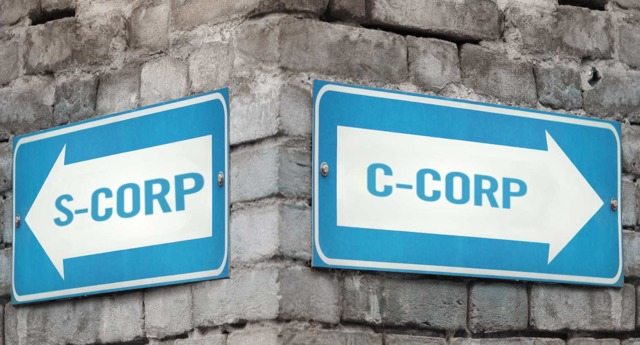Now that we’ve passed the mid-year point, it’s a good time for a quick refresher course on what your business clients need to know about choosing their legal structure. Your clients’ business entity type has legal, financial and administrative implications, so make sure they know all that’s required and the pros and cons of each option. Besides the tax implications, choosing a business structure affects your clients’ abilities to get credit and funding, their personal liability exposure and more. Here’s a quick rundown on each legal structure:
Sole Proprietorships
Sole proprietorships are the most common form of business organization in the U.S. because they are the easiest to form with the least amount of paperwork. The owner has complete control of the business and profits are passed directly through to the owner—business income and expenses are reported on the individual’s tax return. Your clients’ tax rates are therefore based on their personal tax brackets. Most sole proprietorships need to file quarterly estimated taxes and are also required to pay the entire amount of social security and Medicare contribution.
Loans are also based on your client’s personal credit rating and personal risk factors. Finally, because there is no separation between personal and business monies, the business owner is personally liable for debts and lawsuits. It’s a good idea to strongly encourage your clients to acquire liability insurance in case they need to hire a lawyer or pay court fees.
Partnerships
Partnerships are like sole proprietorships but have two or more owners accepting liabilities and financial responsibilities. Your clients will need a partnership agreement to detail each owner’s responsibilities, decision-making power, stake in the business, dispute resolution and scenarios in case of business dissolution. Partnerships have the same pass-through taxation as sole proprietorships, although all partners are liable if one partner is delinquent in payments to the IRS.
Corporations
Corporations are a separate entity from the owners and shareholders and offer the best liability protection for your clients. Personal assets are not affected by the actions and debts of the corporation. As a corporation your clients can also sell stock or shares in their businesses and can also choose to go public. Profits and losses of the corporation are reserved for the corporation, although any dividends issued, they are taxed on their shares. The biggest complaint of becoming a C Corp is the amount of paperwork and filing fees, however this option is a safer bet—especially with help from their CPAs. Because of the recent Tax Cuts and Jobs Act, the corporate tax rate has been cut from 35 percent to 21 percent, making the C Corp a preferable choice for a lot of companies.
S Corps have some features of the sole proprietorship and some of the C Corp. Profits and losses are passed through to owners and shareholders, but owners can separate their personal assets from the business assets and are thereby protected in case any judgments occur against the business. Like the C Corp, S Corps must adopt bylaws, hold annual director and shareholder meetings, and keep meeting minutes with corporate records. Some states do not recognize S Corps and will tax businesses as a regular C Corporation.
Limited Liability Company (LLC)
LLCs are similar to the S Corp when it comes to taxation and liability protection but have less stringent formal internal requirements. Owners are called members and an LLC can choose whether it wants to be taxed as a sole proprietorship, partnership, S Corp or corporation. In most states, an LLC does not have to have an annual meeting and it’s not a requirement to have a board of directors. In addition, LLCs require less paperwork and recordkeeping, as compared to a corporation.
=========
Nellie Akalp is a passionate entrepreneur, business expert and mother of four. She is the CEO of CorpNet.com, a trusted resource and service provider for business incorporation, LLC filings, and corporate compliance services in all 50 states. Nellie and her team recently launched a partner program for accountants, lawyers, and business professionals to help them streamline the business incorporation and compliance process for their clients.
Thanks for reading CPA Practice Advisor!
Subscribe Already registered? Log In
Need more information? Read the FAQs





